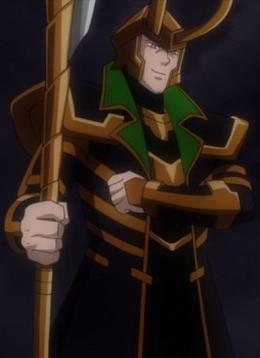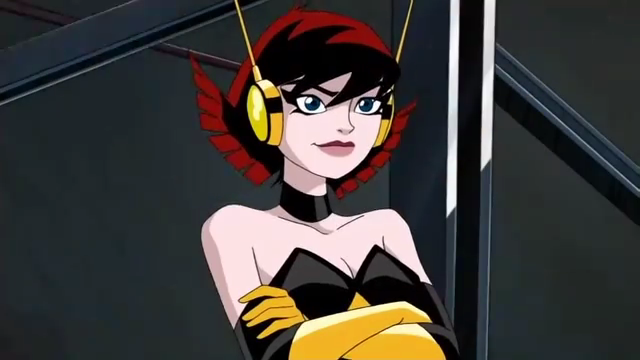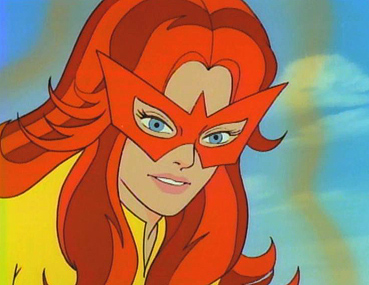I know that this review is really – really – late, and I sincerely apologize for that, readers. Circumstances prevented me from watching Endgame in theaters, and the first time I watched it on DVD…. I didn’t take it well. Saying goodbye to a great franchise has never been easy for this blogger, and she built up a lot of anticipation around this finale. While she was not the only one to do so, she has found meaning in her initial disappointment and turned it into satisfaction.
Since you have waited so long to hear my opinion on this, let’s skip the niceties and jump right in:
Wow. Even after all this time, there is a lot to consider when one looks at Avengers: Endgame. In many ways, the film is a great big love letter from the writers and actors to the fans since this time, the film primarily follows the Avengers. Where Infinity War was mean to pay-off all the fan expectation built up around and for Thanos, the Mad Titan, Endgame is the heroes’ swan song. And it shows. From all the little fun moments such as Scott Lang’s unfortunate first trips through time, to the little in-jokes and jabs the cast give to each other, to the climactic battle at the finale, Endgame is meant to cap and capitalize on an era of great cinema and Marvel-ous storytelling.
If this sounds a bit hyperbolic, it isn’t. While Hollywood has produced a variety of serials in its day, to the best of my knowledge, none have been this extensive. Ten years of united storytelling across twenty-one films (no one with sense is going to count Captain Marvel as anything less than bad fan fiction), the Marvel Cinematic Universe is an unprecedented event in film history. No other serial has had such a variety of stories included in its overarching plot, nor juggled so many characters. And no film serial has ever, as far as this blogger knows, lasted a full ten years!!!
While it had undeniable flaws and individual flops, in retrospect the MCU as a whole really does feel like a series of comic books plastered on the silver screen. I personally think the quality of the films began to fall off after Captain America: Civil War, but even that caveat cannot diminish the ultimate success of the franchise. Stan Lee, Don Heck, Steve Ditko, Larry Lieber, Jack Kirby, Joe Simon, and so many other writers built Marvel Comics into one of the towering titans of popular culture. This series of films is the crowning culmination of their hard work.
The heroes are all here in Endgame. Hawkeye’s arc, while less pronounced than in Age of Ultron, is nonetheless an astounding piece of work. Jeremy Renner is said to have come out of the theater in tears, and after watching his performance, I can see why. Not only is this the last time he and Clint Barton – along with the other actors and their characters – will be on the big screen together, but this is a role that only comes once in a lifetime. To be part of something this impressive, even if the part he must play is not as big as fans think it could have been, is a tremendous privilege.
Black Widow comes full circle in her search for redemption in this story. Abused and manipulated as a child, she finally finds a family in the Avengers. And when that family is shattered by an outside force, she does everything she can to hold its remnants together. When the ultimate sacrifice becomes necessary to resuscitate the sparks of the Avengers’ fire, she only hesitates because she fears the cost will be too much for her best friend to bear. Though death holds no appeal for her, she knows how much worse a living death is, and she is more than willing to pay the price needed to save everyone she loves. It is a truly great moment, one that will make actresses throughout history forever envious of Scarlet Johansson.
Admittedly, I am not the biggest fan of what was done to Thor and the Hulk’s characters. But then, I am one of the few people on the planet who does not like Thor: Ragnarok, primarily because it destroyed the tone and themes that were built up in the first two Thor films. (And seriously, who blows up Asgard like that?! Who shatters Mjolnir?! Ugh….!!) It is a funny movie, to be sure, as is some of the comedy attached to Thor in Endgame. But I would have preferred a much more respectful and, yes, serious treatment of the character in this film than the one we got.
While Hulk/Banner’s characterization is less painful, it would have been nice to see him go into full-blown rage mode in the finale. The main reason we were denied this is due to the character who will receive her spotlight in the complaints section of this post. In many ways, though, this Hulk felt like too much of a departure from previous iterations. I liked the Hulk seen in Ragnarok better than the one we have in Endgame and would have preferred to spend a bit more time with him. Still, the great green Professor’s arc and character alteration in Endgame is not so terribly egregious as to be unbearable.
But the piece de resistance of characterization in this film has to be the completion of Captain America and Iron Man’s character arcs. The two have been the backbone on which the entire franchise was built. One represents home and hearth values, the belief and hope in the promise of the country whose flag he wears. The other is the embodiment of the American drive to be better tomorrow than we are today, to reach new heights of prosperity and ingenuity than we currently possess.
The egocentric, irreverent, and braggadocio that Stark presents himself as for the majority of the MCU storyline is a complete one-eighty degree turn from his original interpretation. But perhaps that was not as unhappy a turn of events as this blogger and others believed. Maybe it was, in a roundabout way, an expression of America’s corrupted idea of progress. Like Stark, America has come to believe that any step forward, no matter how many steps back it forces us to take, is a good thing.
Perhaps it is no accident that Tony’s repeated beatings – from his capture and imprisonment in Afghanistan, to his creation of Ultron, to his signing of the atrociously invasive Sokovia Accords – have occurred in the manner shown throughout the films. The United States has made similar errors during the modern age, though the repercussions have not always been so obvious. As the chickens come home to roost in reality, one can see a reflection of our current self-absorption and (hopefully) our national awakening in Tony Stark’s arc from Iron Man to Endgame.
A happy father and husband in Endgame, Tony can no longer look at the future through the lens of “better technology means a better life.” No matter what new whizz-bang gadget he makes, it can never replace or supersede the joy he has found with Pepper and their daughter. When Cap asks him to “meddle where no man should,” the genius who casually quipped that Ultron would bring about “peace in our time” flatly refuses to upset the home and hearth he has found where he least expected to discover it.
Ever the engineer, however, he cannot allow the chance to make up for his past mistakes that cost himself, the world, and his friends so much. While adamantly declaring that he will not lose what he has gained, he sets out to right one final wrong. In doing so he finally achieves true humility, dying a real hero and a consummate Avenger.
And what about the man out of time? The symbol of American home and hearth values, the Galahad who represents the best aspirations of the United States? Steve Rogers is as he has ever been. Despite being lost in time he knows there is a reason why he was spared death in the ice sheet. Throughout the films following The First Avenger, he wents searching for that reason, the underlying threat he was called to face beyond the lifespan that any normal man ought to have. He discovered that threat was Thanos, and he did his utmost on the field of battle to stop him in Wakanda. But heart alone is not enough, and the absence of his second-in-command cost them all the battle.
In true the magnanimity of his soul, Steve does not hold this failure against Tony. Rather, he carries its weight on his own shoulders. He was the leader, and the failure of one member of the team is something he must bear in consequence of that duty. While Iron Man was indeed wrong, Steve cannot help but wonder if he could have done something at any point in his life that would have altered the course of events.
So when an opportunity to do just that – to make things right and truly defeat Thanos forever – appears, he seizes on it. Destiny has not abandoned him or his team; it only delayed the inevitable battle until all parties were present and accounted for. Armed with that knowledge he goes to make things right, and does so in the fashion of a real American hero and proud Avenger.
Naturally, after fighting the battle of at least two lifetimes, one must wonder what a man ought to do with himself? Why retire, of course. And few men besides Captain America have earned such a well-deserved retirement. He has fought the good fight and met the enemy he was fated to meet. He has seen him destroyed and his country returned to sanity and safety. With his destiny met and the knowledge that the future is in good hands, he can finally rest, leaving his post to another.
These are the six who made the franchise. They were the heroes who stood astride the pass and told evil to turn back, with force, volume, and enthusiasm. They have earned their happiness and retirement, leaving the future in the capable hands of new heroes such as Falcon, the Scarlet Witch, the Winter Soldier, Ant-Man, Wasp, Spider-Man, the Guardians of the Galaxy, Black Panther, and too many others to count. Endgame was their well-earned good-bye, and as painful as it was to watch, it was worth it. The characters have done their duty, and now it is up to the fans to do theirs. Whether that duty is to be a soldier, a business owner, a father or a mother, does not matter. All that matters is that fans of these superheroes acquit themselves as true Avengers ought in their day-to-day lives.
Well, after that poetic overview of the finale to the MCU, which hopefully had some good bits of insight in it, we will cover what I disliked about this film. In truth, most of my complaints are small and have little to do with the writers’ and directors’ choices. The majority of what I found objectionable about this film was forced on it by Marvel Studio and Disney executives more interested in “being hip” than in the property they are charged with protecting and building up.
In this vein, my biggest grievance with the film is the inclusion of Captain Haircut, a.k.a. Carol Danvers. As those of you who have read my previous diatribes about this character know, my issue with Danvers predates Brie Larson’s casting and hiring. But this woman has done nothing to improve my opinion of the character; if anything, she has made it worse. Combine her poor acting with her unnecessary and bigoted comments, and you have an instant recipe for the Mithril Guardian’s dislike.
More to the point, however, she clearly did not need to be in this film. Endgame was a great movie, but her presence in it threw the entire tale off balance and out of kilter. Her scenes could be graciously excised from the narrative or fulfilled by others with ease, making for a much smoother (and better!) story.
For instance, even a fat and out of shape Thor should have been able to summon enough lightning to fry Thanos’ ship. And as someone I know pointed out, the writers and directors had to come up with a reason to prevent Dr. Strange from using his powers to take down the vessel as well. The Hulk should have had the opportunity to make up for his previous scaredy-cat behavior in Infinity War by going full-on rage mode against Thanos during the final fight. And that gratuitous “girl power” scene in the finale, where the heroines fight against Thanos’ army on their own (led by Danvers, of course), was likewise totally unnecessary.
And do not get me started, readers, on how much they have amped up Danvers’ power quotient for the films! Previously, in the comics, the only way she could have destroyed Thanos’ ship would have been if she went into her Binary form. This allows Danvers to channel the power of a white hole, the opposite of a black hole. And as impressive as that power is, it was not enough to bring down Jean Grey, who wasn’t even possessed by the Phoenix Force when Carol Danvers/Binary attacked her. If a regularly-powered Jean can hold her own against Danvers’ strongest form, than this woman is not as impressive as the Studio wants fans to believe.
Do not give me this hooey about Danvers being the most powerful character in the Marvel Universe, people! Almost all of the other heroines in Endgame could take her down in her the comics, with Scarlet Witch being the first one in line. That girl could erase Danvers or negate her powers entirely just by flicking her pinky finger, so don’t tell me that she’s more powerful than Wanda Maximoff! That’s an insult to my intelligence, an insult to fans everywhere, to the Scarlet Witch herself, and to Elizabeth Olsen.
Speaking of Ms. Olsen, rumor has it she and the other actresses in the MCU are not happy about the slavering adoration the Studio has heaped on Larson and Captain Haircut. They worked hard to make their characters likeable and to build a fanbase for themselves through the Marvel franchise, and now that franchise is trying to cut the legs out from under them. Let’s hear it for “girl power,” right? (Author rolls eyes.)
The only thing I liked about Danvers’ inclusion in Endgame is that Thanos gets to punch her square in the eye. He has to use the Power Stone to accomplish this feat, unfortunately, but the expression of horror on her face an instant before his fist connects with her unattractive mug is pure ambrosia. I would not be the least bit surprised if the Russo brothers and the writers added that scene just to vent their frustration with Marvel Studios and Disney, while giving fans something to laugh at heartily.
Despite this canker, Endgame is a remarkable film well worth watching. It is not perfect, nor what this blogger wanted; she would have liked a more Return of the Jedi-style finale for the franchise. But given how well that worked for Star Wars, she cannot fault the filmmakers for closing the door on future film avenues more permanently in this movie.
If, by some miracle, you have not yet seen Avengers: Endgame I recommend giving it a viewing. While it may not be perfect or have everything that made the rest of the films great, it is still a beautiful good-bye from the actors, writers, and directors who brought us ten fantastic years of cinematic storytelling. Don’t let the flaws interrupt their heartfelt sayonara, readers. This is a movie that deserves to be viewed!
“Avengers…. ASSEMBLE!”
The Mithril Guardian
































































